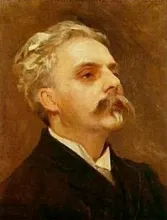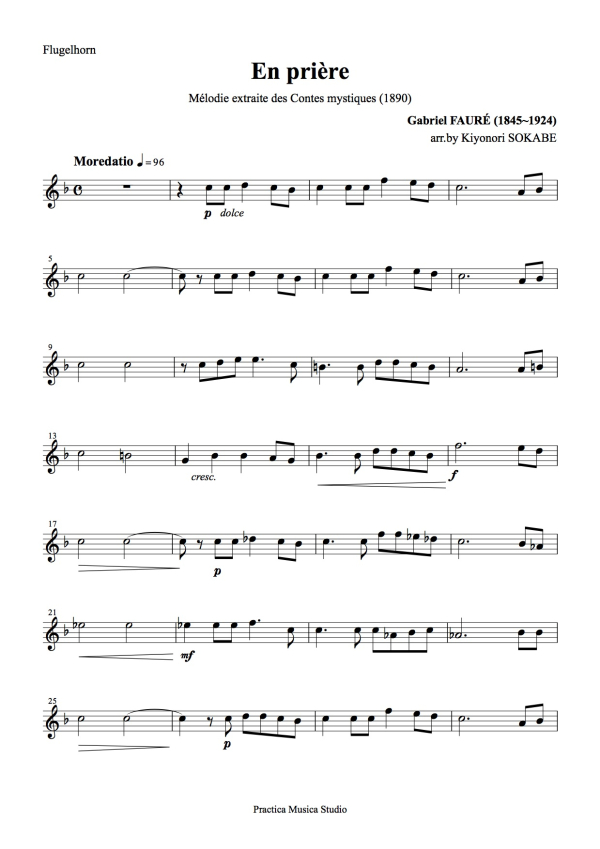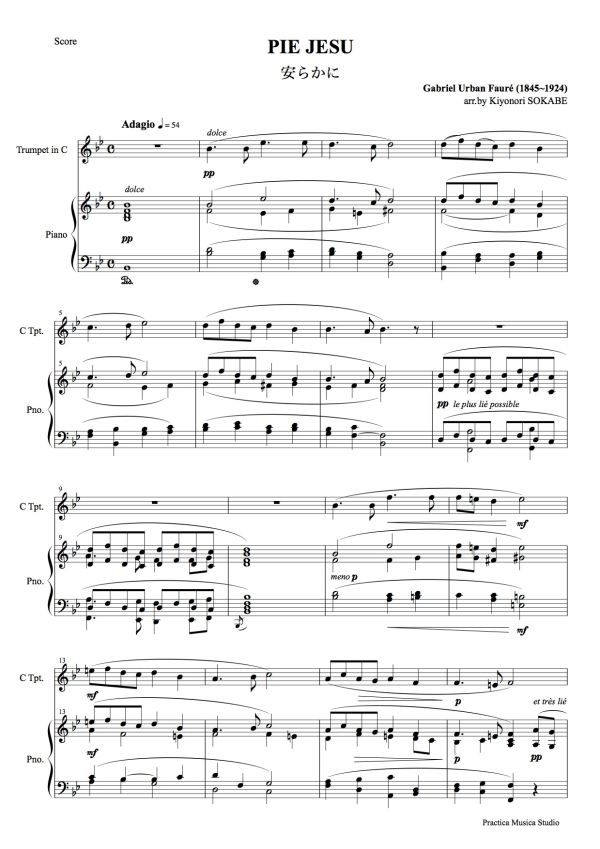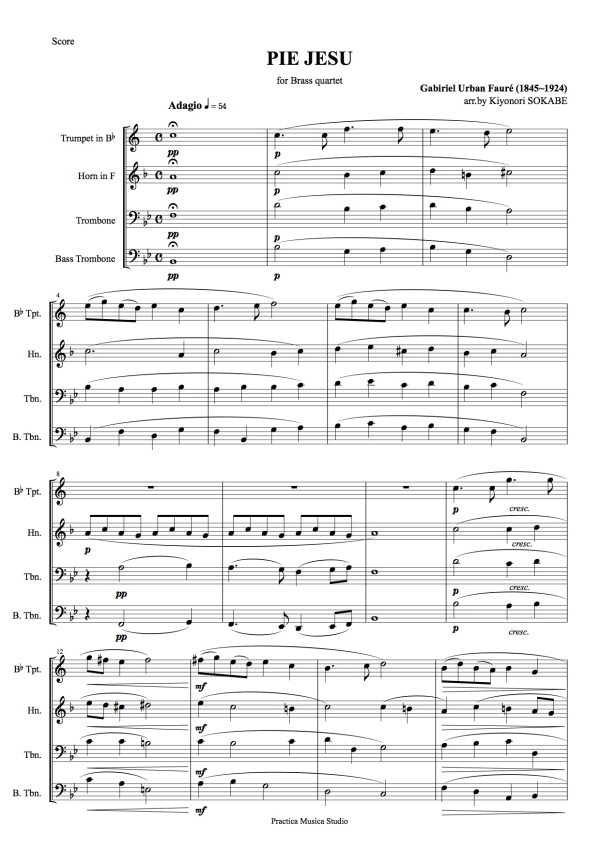Gabriel Urbain Fauré was a French composer, organist, pianist and teacher. He was one of the foremost French composers of his generation, and his musical style influenced many 20th-century composers. Among his best-known works are his Pavane, Requiem, Sicilienne, nocturnes for piano and the songs "Après un rêve" and "Clair de lune". Although his best-known and most accessible compositions are generally his earlier ones, Fauré composed many of his most highly regarded works in his later years, in a more harmonically and melodically complex style.
Fauré was born into a cultured but not especially musical family. His talent became clear when he was a small boy. At the age of nine, he was sent to a music college in Paris, where he was trained to be a church organist and choirmaster. Among his teachers was Camille Saint-Saëns, who became a lifelong friend. After graduating from the college in 1865, Fauré earned a modest living as an organist and teacher, leaving him little time for composition. When he became successful in his middle age, holding the important posts of organist of the Église de la Madeleine and director of the Paris Conservatoire, he still lacked time for composing; he retreated to the countryside in the summer holidays to concentrate on composition. By his last years, Fauré was recognised in France as the leading French composer of his day. An unprecedented national musical tribute was held for him in Paris in 1922, headed by the president of the French Republic. Outside France, Fauré's music took decades to become widely accepted, except in Britain, where he had many admirers during his lifetime.
FAURÉ, Gabriel Urbain
ガブリエル・ユルバン・フォーレ
ガブリエル・ユルバン・フォーレはフランスの作曲家。フランス語による実際の発音はフォレに近い。フランス南部、ミディ=ピレネー地域圏のアリエージュ県、パミエで教師だった父の元に五男一女の末っ子として生まれた。幼い頃から教会のリード・オルガンに触れるうちに天性の楽才を見出される。フォーレは9歳のときに入学したパリのニーデルメイエール古典宗教音楽学校(1853年開校)にて学び、教師で校長であったルイ・ニーデルメイエールの死後、1861年に教師としてやってきたカミーユ・サン=サーンスにピアノと作曲を師事した。1865年に卒業したのち、旅行先のレンヌにて教会オルガニストの職を得た。1870年、フランスに戻ったときには当時勃発していた普仏戦争において、歩兵部隊に従軍志願している。のち、パリのマドレーヌ教会でオルガニストとなり、1896年にはマドレーヌ教会の首席ピアニストに任じられ、またフランス国立音楽・演劇学校の教授にもなっている。1871年にはサン=サーンス、フランクらとともにフランス国民音楽協会の設立に参加している。父親の死後に作曲された『レクイエム』は彼の代表作の一つである。他の管弦楽や声楽を含んだ大規模作品として、歌劇『ペネロープ』、『プロメテ』、『マスクとベルガマスク』、『ペレアスとメリザンド』などがある。

Displaying 1 - 11 of 11
Displaying 1 - 11 of 11








